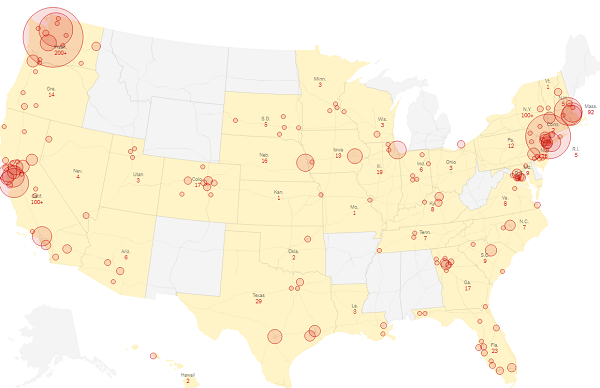Narcissists are familiar with empathy but they’re RELUCTANT to show it to avoid being perceived as weak
03/10/2020 / By Ralph Flores

“Narcissism” is a word that gets thrown around a lot, especially when it comes to describing a person who is egotistical, self-centered, excessively vain and haughty. Indeed, these traits describe narcissists to a tee, but a particular behavior that drives everyone up the wall is a narcissist’s lack of empathy. The latest Diagnostic and Statistical Manual of Mental Disorders (DSM-5) classifies narcissism as a personality disorder, with “a lack of empathy” being one of its symptoms.
But what if narcissists do feel empathy?
When empathy is a weapon
Most people demonstrate narcissistic traits on occasion: Just go to any social media account (even your own) to find proof. For people with narcissistic personality disorder (NPD), however, these traits stem from grandiosity, a lack of empathy for people and a need to be admired. Those with NPD feel they deserve special treatment and even have grandiose fantasies, often seeking admiration and attention and being intolerant to criticism and defeat.
According to the DSM-5, a person with NPD exhibits five or more of the following symptoms:
- Inflated feelings of self-importance
- Fantasies of unlimited success, power, brilliance, beauty or love
- A belief that he is special and can only be understood by special people
- Entitlement (i.e., the need to have special treatment)
- Need for excessive admiration
- Exploitation of others
- A lack of empathy
- Either the belief that he/she is the object of envy or feeling envious of others
- Arrogance and other haughty behavior
Those with NPD may feel “attacked” after being criticized or losing. While some may react with disdain and anger, others will respond with false humility or social withdrawal. Taken together, these aspects of NPD can damage relationships and even adversely affect the person himself. Studies have linked NPD with high rates of substance abuse, mood and anxiety disorders.
In an article in Psychology Today, psychotherapist and author Katarina Valentini writes that on the surface, most people with NPD seem as if they have absolutely no interest in the feelings of others, but a closer look will reveal otherwise. Narcissists do feel empathy — in the sense that they can put themselves in another person’s position and understand their point of view. The main difference, according to Valentini, is how they use empathy: Unlike most people, people with NPD use empathy as a tool to boost their inflated sense of self.
“Narcissists are excellent in reading people and in attuning to them at a phenomenological and emotional level,” she added. “They know exactly what you need, wish and crave, and they know what they need to do to win you over.”
“The only difference is that they will use that knowledge to manipulate you.”
A hope for narcissists?
But don’t be quick to dismiss those with NPD just yet: While they may have very little empathy compared to others, their narcissistic behavior tends to mellow with age. In a study led by University of Mannheim psychologist Eunike Wetzel, she noted that a person’s work dimensions, such as leadership roles and job prestige, and family structure, like intimacy or number of children, play a significant role in the rate of decline for narcissists. It’s also worth noting that there are some people with NPD that feel empathy but are afraid to show it since they feel that it would be seen as a weakness on their part. This also drives them to exploit others first, for fear that these people will turn on them in return.
So, what do you do when you’re dealing with a narcissist? Valentini says the first thing to do is to stop judging them. This allows them to feel safe enough to be vulnerable and use their empathy to benefit both of you.
“They don’t like competition and being judged, that is why it is important we help them to feel good enough,” she explains. “When narcissists feel they can trust us and know that we won’t use whatever they have trusted us with against them, they will open up and become softer.”
Sources include:
Tagged Under: auto-immune disorders, disorders, empathy, mental health, Narcissistic Personality Disorder, narcissists


















